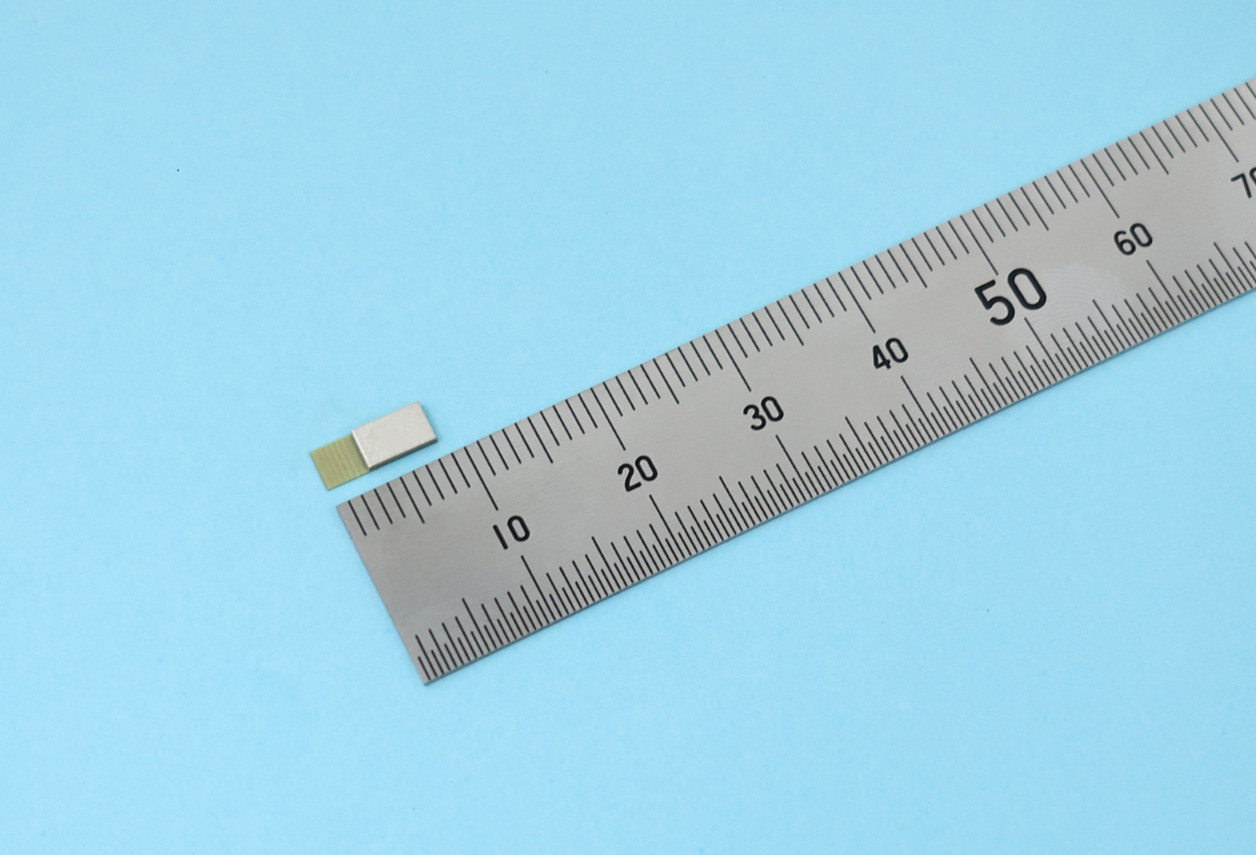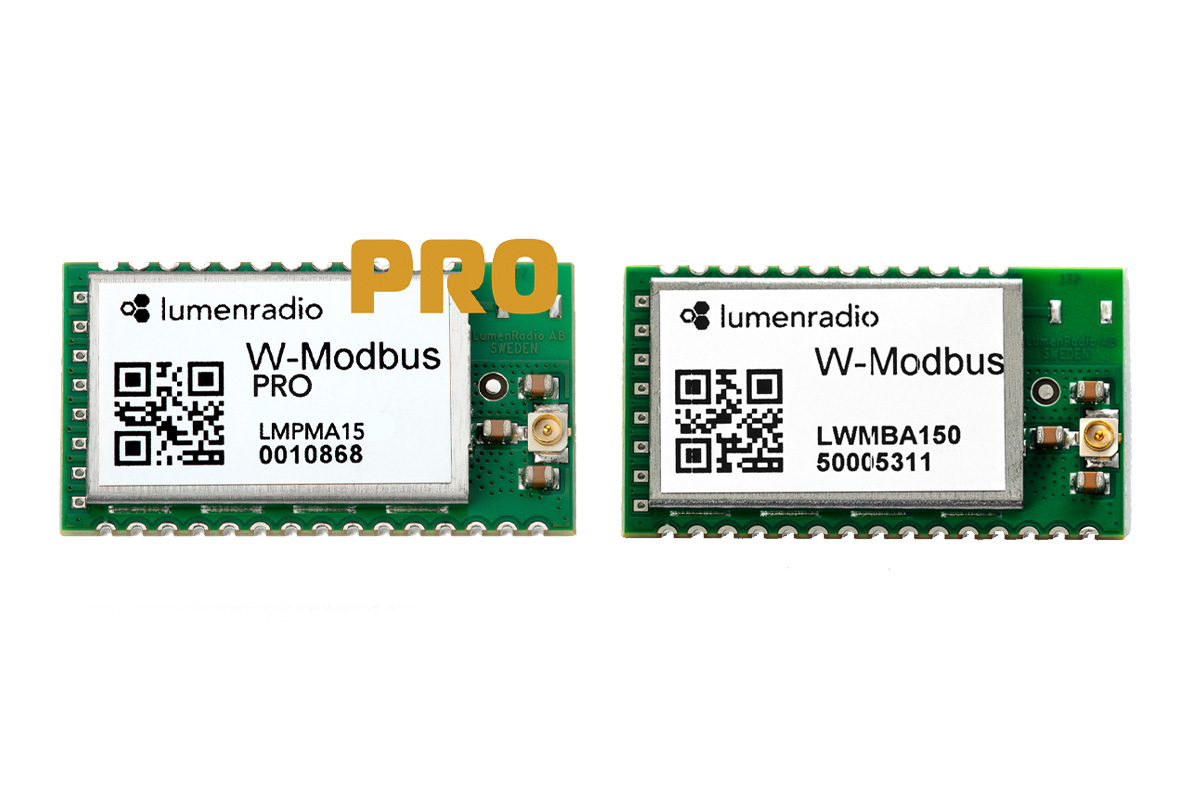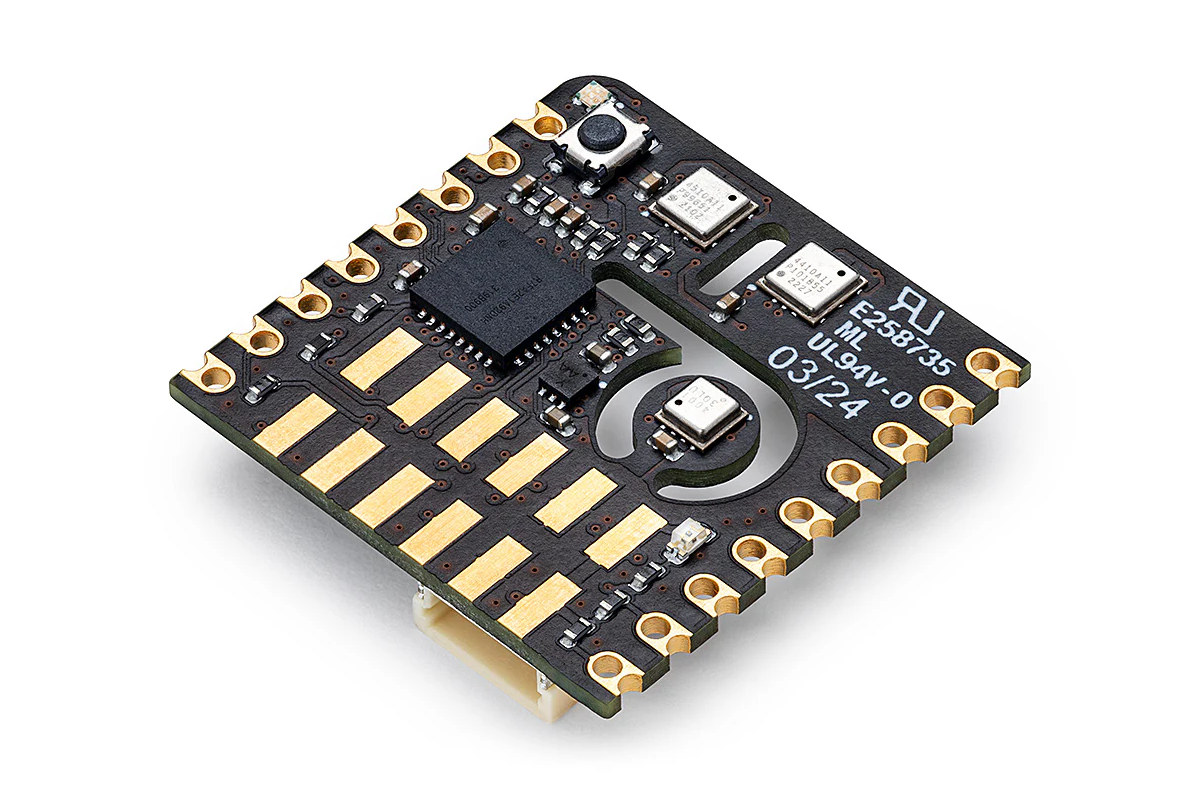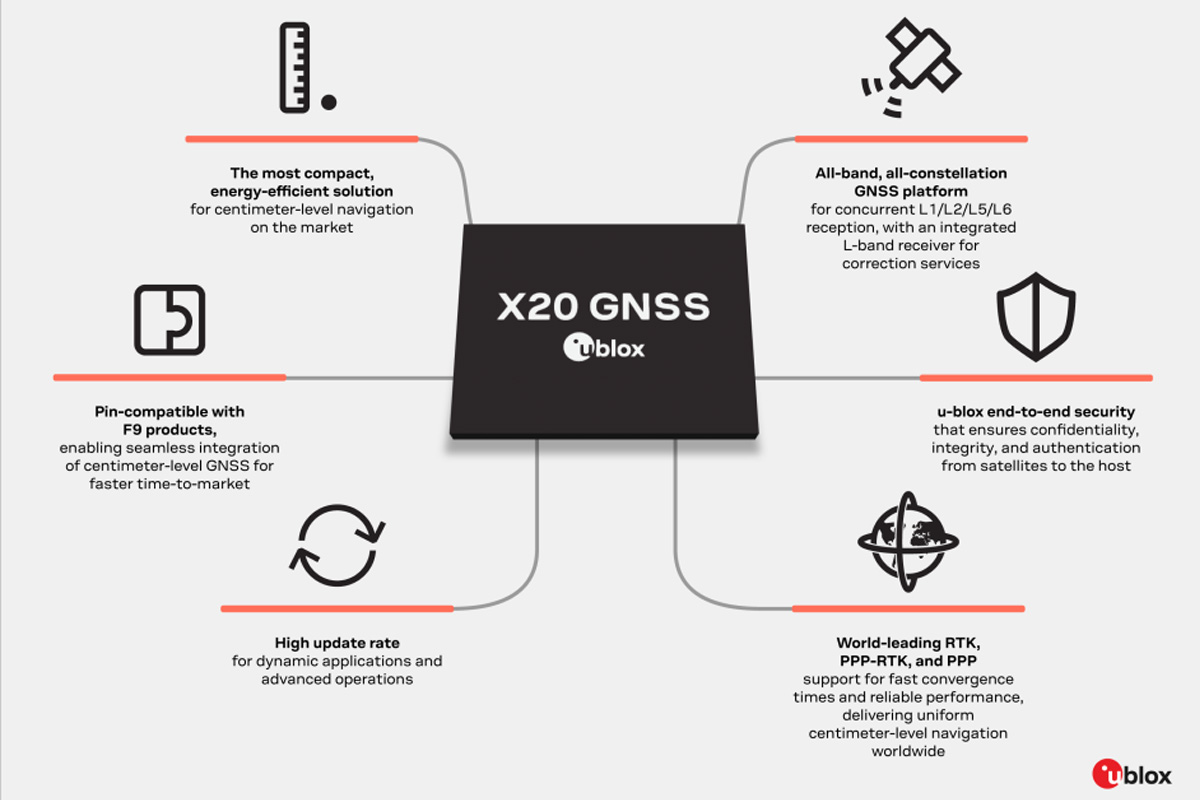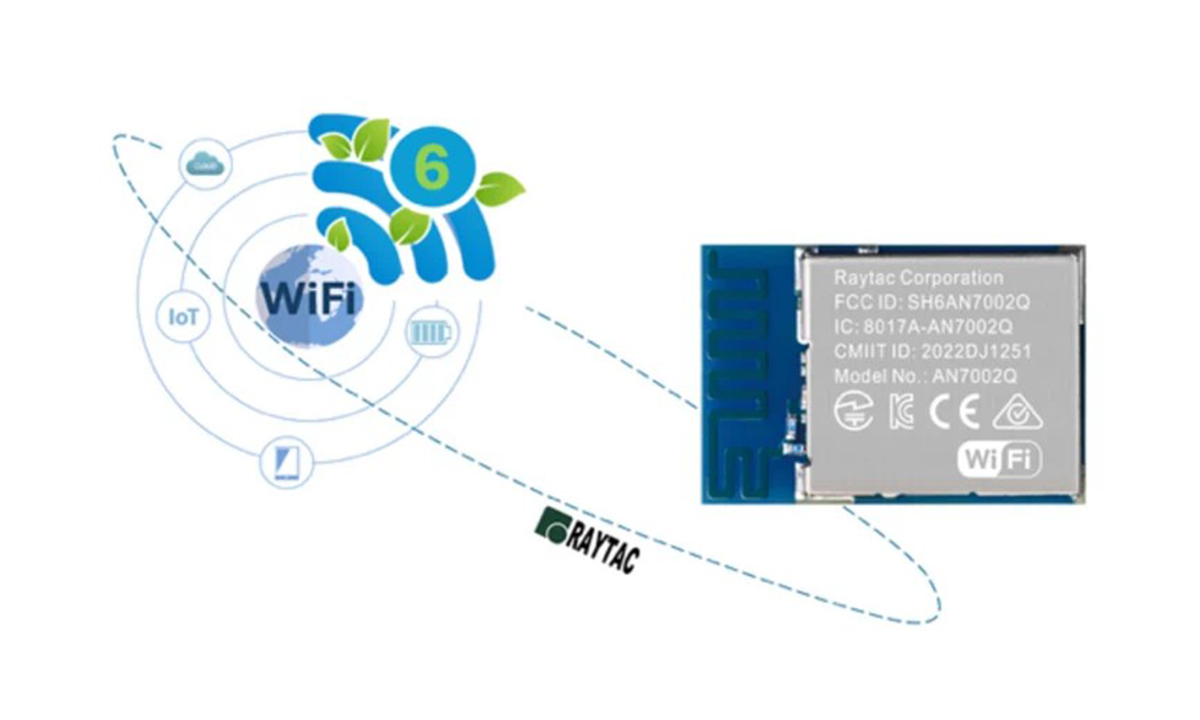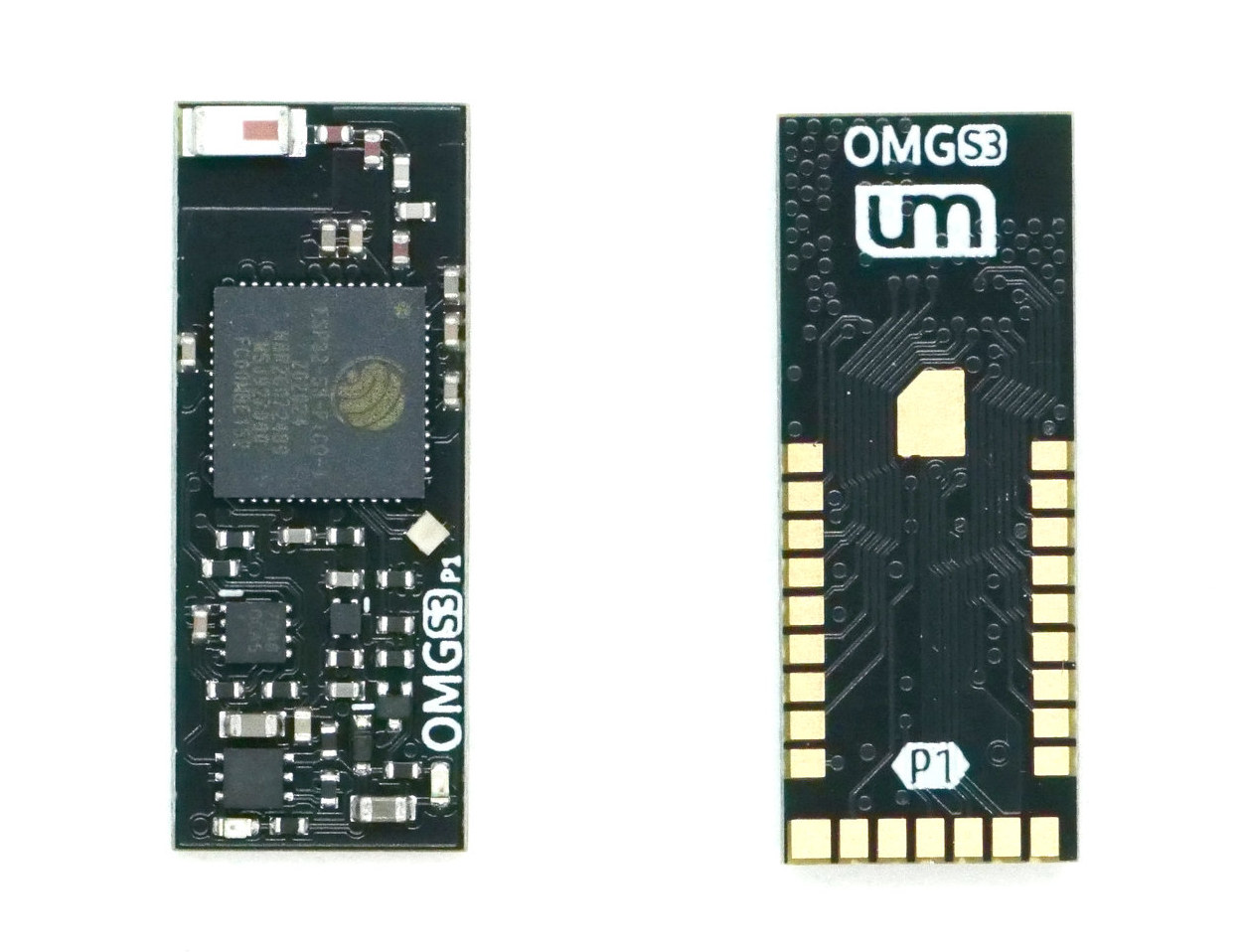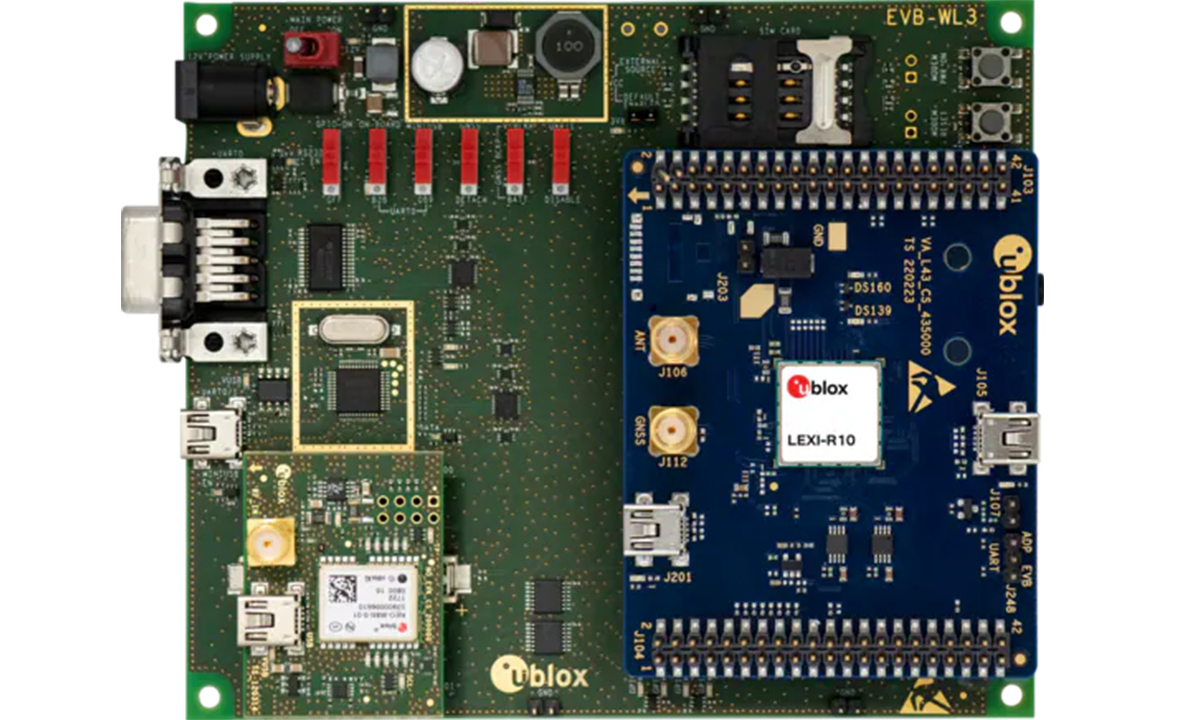Japanese company KAGA FEI has recently unveiled the incredibly small ES5L15BA1 Bluetooth LE 6.0 and 802.15.4 module based on Nordic Semi nRF54L15 ultra-low-power Cortex-M33 wireless MCU. We had previously covered the u-Blox NORA-B2 which I already found pretty small at 14.3 x 10.4 x 1.9mm, but the ES5L15BA1 module goes a step further measuring just 8.55 x 3.25 x 1.00 mm with an integrated antenna which could make it the world’s smallest Bluetooth LE module. KAGA FEI ES4L15BA1 specifications: SoC – Nordic Semiconductor nRF54L15 MCU cores Arm Cortex-M33 with Arm TrustZone @ 128MHz RISC-V coprocessor for software-defined peripheral Memory – 256KB SRAM Storage – 1.5MB non-volatile memory Wireless Bluetooth 6.0 Data rates – 2Mbps, 1Mbps, 500kbps, 125kbps Features AoA / AoD Channel Sounding 802.15.4 radio for Thread / Zigbee / Matter Nordic Proprietary 2.4 GHz protocol up to 4 Mbps Frequency – 2402 to 2480 MHz +8dBm output power Antenna […]
XIAO ESP32S3 for Meshtastic & LoRa devkit features Wio-SX1262 LoRa module
The “XIAO ESP32S3 for Meshtastic & LoRa” is an ESP32-S3 LoRa dev kit that combines an XIAO ESP32S3 board with the tiny Wio-SX1262 LoRa module connected through a board-to-board connector. This compact devkit supports LoRa (862-930MHz), Wi-Fi (2.4GHz), and Bluetooth 5.0 (BLE), with a 5km range for LoRa and a 100m+ range for Wi-Fi/BLE. The kit also has a USB Type-C interface, a built-in power management chip, and multiple I/O options such as IIC, UART, and GPIO. It supports external LoRa antennas and can be extended with XIAO expansion boards for more complex setups. These features make this device suitable for projects such as LoRaWAN gateways, IoT sensors, Meshtastic nodes or routers, and applications where space is limited. XIAO ESP32S3 for Meshtastic & LoRa specifications: SoC – Espressif Systems ESP32 with dual-core Xtensa LX7 microcontroller up to 240MHz Wireless Connectivity LoRaWAN via Semtech LX1262 Output Power – Up to +22 […]
LumenRadio’s nRF52840 based Wireless Modbus module aims to simplify Modbus RTU installations
LumenRadio has recently introduced a Wireless Modbus (W-Modbus) module built around Nordic Semiconductor’s nRF52840 SoC. The module can connect up to 100 nodes, integrates a power amplifier with 100mW transmission power, and supports Bluetooth LE for smartphone connectivity. These features simplify Modbus RTU installations by eliminating traditional control cables, making them ideal for building and industrial automation applications. The company mentions two variants available for this module the ‘W-Modbus OEM Module’ which supports one Modbus client, and the ‘W-Modbus PRO OEM Module’ supporting up to sixteen Modbus clients. Both modules support self-healing, self-organizing mesh protocols that address the issues of network reliability and scalability in industrial environments. The module can also be used for remote monitoring and troubleshooting via smartphones. LumenRadio’s Wireless Modbus module specification Module – LumenRadio W-Modbus module SoC – Nordic Semiconductor nRF52840 CPU – 32-bit Cortex-M4 core with FPU @ 64 MHz Connectivity Bluetooth 5.4 (BLE, Bluetooth mesh, […]
Arduino Nicla Sense Env module features temperature, humidity, and gas sensors from Renesas
Arduino Nicla Sense Env is a new sensor module with temperature, humidity, and gas (TVOC, NO2, O3) sensing that follows the launch of the Arduino Nicla Sense ME (Motion & Environment) module over three years ago (2021). The implementation of the new module is quite different since the ME module relies on Nordic Semi nRF52832 Cortex-M4 microcontroller and Bosch SensorTech motion and environmental sensor, but the new Nicla Sense Env module is made of parts from Renesas namely the RA2E1 Cortex-M23 microcontroller, the HS4001 humidity and temperature sensor, the ZMOD4410 gas sensor for TVOC and indoor air quality, and the ZMOD4510 gas sensor for NO2, O3, and outdoor air quality. Arduino Nicla Sense Env (ABX00089) specifications: MCU – Renesas RA2E1 Arm Cortex-M23 entry-line microcontroller (not accessible or programmable by the user) CPU core – Arm Cortex-M23 core up to 48 MHz Memory – 16KB SRAM Storage – 128KB flash Sensors […]
u-blox X20 all-band GNSS module offers centimeter-level accuracy, u-blox F9 pin-to-pin compatibility
u-blox has recently launched the X20 all-band GNSS module with an integrated L-band receiver that supports all available GNSS satellite signals (L1/L2/L5/L6) and can provide centimeter-level accuracy globally. The module also includes PPP (Precise Point Positioning) correction on top of RTK (Real-time Kinematic) and features like end-to-end security functions, advanced jamming/spoofing detection, and other software features. These features make this device useful for industrial automation, automotive, UAVs, and ground robotics applications. Multi-band GNSS receivers using L1, L2, L5, and the new L6/E6 band frequencies enhance accuracy, reliability, security, and other benefits. That includes better PNT (Positioning, Navigation and Timing) and RTK performance, access to global precise point positioning (PPP) services like Galileo HAS, faster convergence times in PPP for industrial and automotive use, and access to regional PPP services like MADOCA-PPP. Additionally, it helps comply with regional regulations like AIS-140 for NavIC in India and improves jamming and spoofing immunity […]
Raytac AN7002Q – A smaller nRF7002 Wi-Fi 6 module for industrial IoT applications
IoT solutions company Raytac has introduced the AN7002Q Wi-Fi 6 module series, which integrates Nordic Semiconductor’s nRF7002 chipset and is designed for Industrial IoT, smart home, healthcare, consumer electronics, and automotive applications. They can be paired with Raytac’s MDBT53 Bluetooth LE modules based on the nRF5340 multiprotocol SoC, supporting Wi-Fi and Bluetooth LE solutions. The AN7002Q is a low-power Wi-Fi 6 module supporting dual-band 2.4 GHz and 5 GHz operation with a maximum PHY data rate of 86 Mbps (MCS7). It is compatible with IEEE 802.11ax, a/b/g/n/ac standards, and connects to a host SoC or MCU via SPI or QSPI interfaces. The module also supports coexistence with Bluetooth LE, Thread, and Zigbee systems, making it ideal for IoT applications. Previously, we covered the Abluetech PTR7002, a low-power wireless module based on the Nordic Semiconductor nRF7002. The PTR7002 has a slightly larger size and offers more GPIO options, while the AN7002Q […]
ESP32-S3-PICO-based OMGS3 is the world’s smallest fully-featured ESP32-S3 module/board
Based on the ESP32-S3-PICO system-in-package (SiP), Unexpected Maker OMGS3 is a small, yet full-featured ESP32-S3 module/board whose designer claims is the world’s smallest in its category at just 25x10mm in size. It replaces the earlier Unexpected Maker NanoS3 based on the ESP32-S3FN8 SoC measuring 28 x 11 mm. The OMGS3’s ESP32-S3-PICO SiP integrates a dual-core ESP32-S3 WiFi and BLE wireless SoC, 8MB QSPI flash, and 2MB QSPI PSRAM. The board itself also includes a 3D antenna, an RGB LED, two LEDs for power and charging, and I/Os are exposed through 26 solder pads. Unexpected Maker OMGS3 specifications: SiP – Espressif ESP32-S3-PICO SoC ESP32-S3 dual-core Tensilica LX7 up to 240 MHz with 512KB SRAM, 16 KB RTC SRAM Wireless – WiFi 4 and Bluetooth 5 LE + Mesh Memory – 2MB QSPI PSRAM Storage – 8MB QSPI flash Antenna – High-gain 3D antenna I/Os via 26x solder pads Up to 17x GPIO […]
u-blox EVK-LEXI-R10 evaluation kits feature LEXI-R10 LTE Cat 1bis and MAX-M10S GNSS modules for Cellular IoT and GPS connectivity
u-blox has developed the EVK-LEXI-R10 evaluation kits to help engineers test and evaluate their LEXI-R10 LTE Cat 1bis cellular modules. These compact modules support data speeds of up to 10Mbit/s for downloads and 5Mbit/s for uploads, all while using very little power. They also include built-in Wi-Fi to scan indoor hotspots and work with u-blox’s CellLocate service for both indoor and outdoor tracking. Available in regional variants, the boards and kits are certified by major mobile operators, including those in the US. The LEXI-R10 series by u-blox features the world’s smallest LTE Cat 1bis modules in the LEXI LGA form factor. The EVK-R10 kits simplify the evaluation of these multi-band LTE Cat 1bis modules. The EVK-R10401D kit supports the LEXI-R10401D module for North American operations, the EVK-R10801D kit supports the LEXI-R10801D module for Europe, Middle East, Africa, and Asia-Pacific, and the EVK-LEXI-R10001D kit supports the LEXI-R10001D module with global coverage. […]


